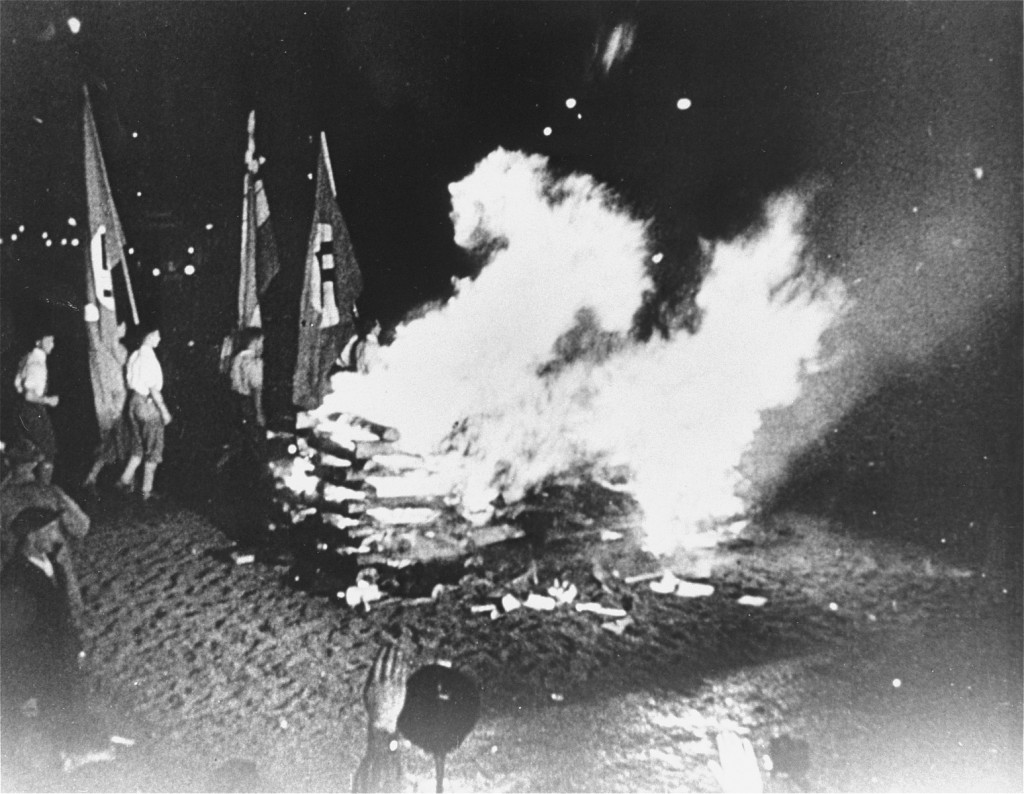
William L. Shirer
American journalist, foreign correspondent, author, and pioneer radio broadcaster William L. Shirer was one of the major observers and chroniclers of the Nazi regime.
Key Facts
-
1
Shirer was among a group of American foreign correspondents known as “Murrow’s Boys” who reported on Nazi Germany and World War II for CBS radio.
-
2
Shirer broadcast the only uncensored eyewitness account of the Anschluss, the German annexation of Austria.
-
3
He is the author of The Rise and Fall of the Third Reich, one of the first comprehensive histories of the Nazi regime.
Early Career
Born in Chicago in 1904, Shirer grew up in Cedar Rapids, Iowa, where he attended Coe College. After graduating in 1925, he worked his way to Europe on a cattle boat, intending to become a journalist. By 1927, the Chicago Tribune had hired him as a correspondent in its Paris bureau. In 1934, he reported on the Nazi Party Rally in Nuremberg for the New York Herald Tribune.
Shirer joined William Randolph Hearst’s International News Service (INS) in 1937, but was soon laid off. The same day, he received a telegram from Edward R. Murrow of CBS News Radio asking him to dinner at the Adlon Hotel in Berlin, where foreign correspondents often gathered. By the end of the meal, Murrow had offered Shirer an audition.
Covering the Nazi Regime
Murrow was convinced that the momentous developments in Europe needed to be reported to Americans by journalists who could also give them critical analysis of the events. He assembled a group of young reporters, including Shirer, who became known collectively as “Murrow’s Boys.” Together, they informed the American listening public about what was happening in Europe and its significance for the United States. Under Murrow’s direction, these talented correspondents revolutionized broadcast journalism, becoming household names in the process.
Murrow assigned Shirer to Vienna, where in March 1938, he witnessed the Anschluss (Germany's annexation of Austria). When German troops guarding the state radio station prevented Shirer from broadcasting, he flew to London at Murrow’s suggestion to transmit the first uncensored account of Nazi Germany’s annexation of Austria. The next day, CBS asked Shirer and Murrow to produce a 30-minute broadcast featuring live reports from five European capitals. Arranged in only eight hours and without any rehearsal, the nearly flawless broadcast was a major feat of journalism and established a format still used by television and radio programs today, the “evening news roundup.”
Censorship and Propaganda
Shirer fought always to transmit accurate news despite attempts by German radio authorities to censor his reports. Often, he had to indicate a truth to his listeners by the tone or inflection in his voice, or by a pause held longer than usual. As the Nazi regime applied increasing pressure on him to include official propaganda in his scripts, Shirer signaled CBS headquarters that the tightening censorship made it impossible for him to report objectively. “I may,” he wrote, “have outlived my usefulness here.” Tipped off that the Gestapo was building an espionage case against him, a crime that carried the death penalty, Shirer began to make plans to get himself, his diaries, and reporter’s notebooks out of Germany.
Shirer left Germany and returned to the United States in 1940. The CBS network publicity department arranged lecture engagements for him, which turned into a national tour in 1941, after the publication of his best-selling book, Berlin Diary: The Journal of a Foreign Correspondent. He returned to Germany to cover the Nuremberg Trials in 1945.
Later Career
Back in New York, he hosted a CBS weekly news and analysis program until being fired in 1947, ostensibly for his left-leaning views. The firing led to a falling out with Murrow that the two men never repaired. In the 1950s, Senator Joseph McCarthy accused Shirer of being a Communist sympathizer. McCarthy’s false accusation nearly ended Shirer’s career. In order to support himself, Shirer wrote The Rise and Fall of the Third Reich, considered the first serious non-scholarly narrative history of the Nazi regime. The book sold more than one million copies in hardback, won the 1961 National Book Award, and restored his reputation.
Shirer continued to write about his experiences as a foreign correspondent, publishing an epilogue to Berlin Diary, his Berlin broadcast scripts, and a multi-volume autobiography. William L. Shirer died in Boston in 1993.
Critical Thinking Questions
What risks do journalists face in foreign countries under new leadership?
How does the media, in any form, impact public understanding and/or will to action?
Compare The Rise and Fall of the Third Reich to more modern accounts of World War II. What new information and political events have changed understanding of the history of WWII?

